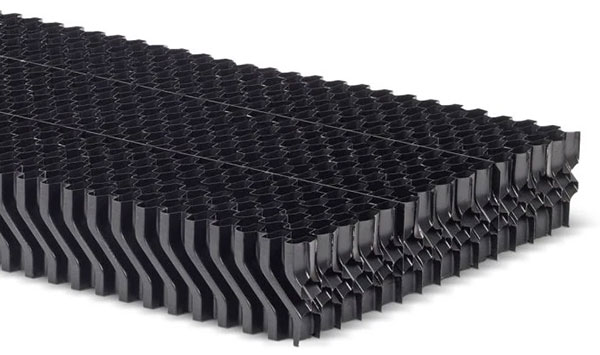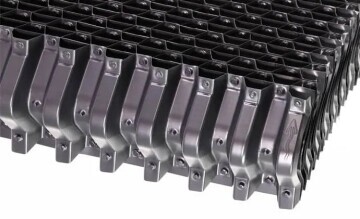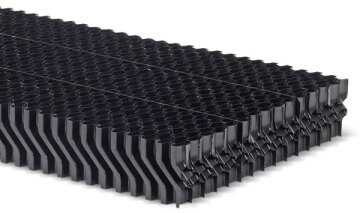Drift Eliminators
A Cooling Tower Drift Eliminator is a component designed to reduce or eliminate the loss of water droplets (drift) that are carried away with the air leaving the Cooling Tower. Drift occurs when water from the Cooling Tower, which is supposed to stay inside the system, is carried by the airflow. Drift eliminators trap these water droplets and prevent them from escaping into the environment.

We offer PVC and Polypropylene Drift Eliminator options:

Brentwood CF Ultra PVC Drift Eliminator
CF Ultra is the highest performing Drift Eliminator in the industry.
View Product
Brentwood TEP130 Polypropylene Drift Eliminators
The TEP130, crafted from durable Polypropylene, is highly resistant to chemicals and UV exposure, ensuring exceptional longevity.
View ProductBenefits of Drift Eliminators
Low Pressure DropDrift Eliminators are designed to offer minimal resistance to airflow, which ensures they do not significantly affect the Cooling Tower's efficiency or energy consumption. |
High Efficiency Droplet CaptureDrift Eliminators are designed with a high surface area, using PVC or Polypropylene in corrugated or cellular patterns. This maximises their ability to capture even the smallest water droplets from the Cooling Tower air stream. |
Durable ConstructionThey are made from corrosion-resistant materials, ensuring longevity and resistance to harsh environmental conditions, chemicals, and constant exposure to water. |
Water ConservationReduces water loss, saving resources and minimising the need for additional water. |
Improved EfficiencyHelps maintain Cooling Tower efficiency by ensuring proper water recirculation. |
If a Drift Eliminator is not working properly, water droplets will escape into the atmosphere, leading to increased water loss and potential environmental issues. This can cause non-compliance with regulations. Additionally, it may lead to lower Cooling Tower efficiency, higher energy consumption, and possible damage to surrounding equipment or structures.
Get a Quote